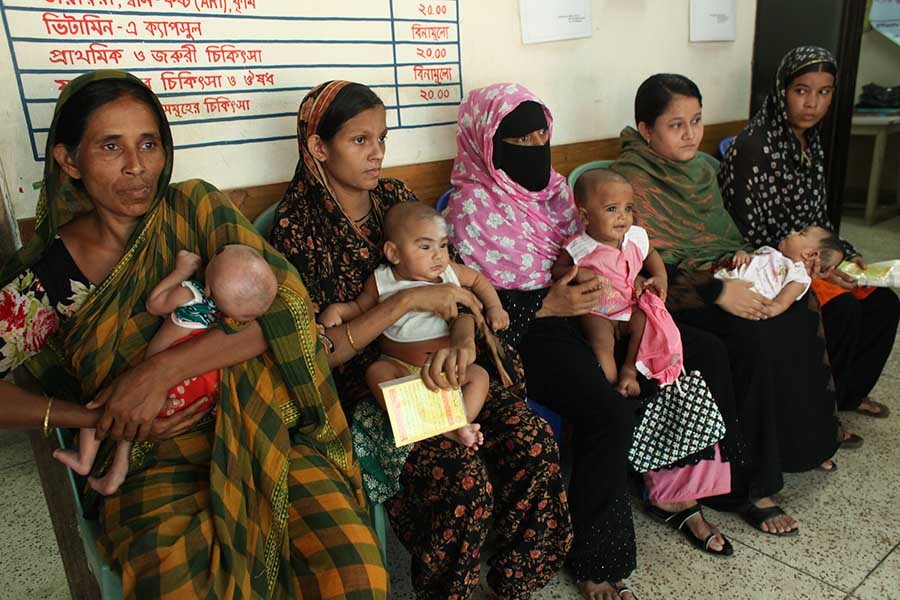There is no denying that the country's healthcare services are in a shambles. Despite mushroom growth of private clinics and diagnostic centres throughout the country, the poor people are still deprived of the minimum standard of medical services.
Private healthcare services were introduced partly to take the pressure off public hospitals struggling with a huge number of patients and stem the flow of those going abroad for treatment. It was seen as a solution to the country's healthcare crisis, with its modern technology and the expertise that it had brought along.
Although private hospitals and clinics have been growing in the country to cater to the needs of a large segment of the people who are failing to get proper services from the government hospitals, they are allegedly exploiting the patients. The laws are not effective and there are also problems with compliance issues.
What is surprising is that more than 40 per cent of private hospitals, clinics, blood banks and diagnostic centres are not registered with the relevant government agencies. The hospital and clinic wing under the Director General (DG), Health does not have the capacity to regularly monitor mushroom growth of the clinics, hospitals, blood banks and diagnostic centres in the private sector.
There is no denying the fact that the number of qualified doctors, nurses and other professionals is too inadequate to cope with the demand for qualified physicians. Private medical institutions are also being set up at random. But there is a dearth of qualified teachers to produce qualified doctors.
Mismanagement and anarchy plague the country's healthcare system. Affluent people have little faith in local healthcare services. Going abroad for treatment is a regular phenomenon here. A substantial amount of foreign currency is going down the drains for the purpose.
There is shortage of specialist physicians in the country. A specialist physician, after his duty at the public hospitals, attends at least 50 patients a day at private clinics. How can he make justice in offering fair treatment to the patients? In reality, poor doctor-patient communication poses as a hindrance from reaching correct diagnosis. Many doctors in Bangladesh are reluctant to improve such communication.
Studies have shown that of all the risks that the poor people are facing, health risks probably pose the greatest threat to their lives and livelihoods in Bangladesh. The consistently inequitable nature of the healthcare system limits the access to healthcare by the poor who need it the most. Concern was raised recently about attaining the health-related Millennium Development Goals (MDGs) in low middle-income countries like Bangladesh without improving the ability of health systems to reach the poor effectively.
A recent survey by the Transparency International Bangladesh (TIB) survey paints a disturbing picture of the private-sector healthcare, with the hospitals and diagnostic centres having turned into profit-driven enterprises devoid of the basic principles that govern healthcare.
Low-quality services, excessive fees, and lack of efficient doctors and nurses are to blame for this situation. But most importantly, it is our weak regulatory mechanism that allowed the situation to persist.
The TIB report says these organisations are being run through what it called a 'commission-based marketing mechanism,' a win-win strategy that benefits the physicians, owners of hospitals and diagnostic centres, the drug stores, middlemen, and practically everyone involved in the process-except those who matter most, the patients. Evidently, the sector is failing to provide a better alternative to public healthcare system, it said.
Healthcare analysts at a recent roundtable in the city were sharply critical of the high cost of medical treatment in the country. The government and the political parties, they suggested, need to take a number of pragmatic steps to stop the whole-scale commercialisation of the healthcare sector.
The dismal health and nutrition situation, implying a poor state of food and nutrition security in both rural and urban Bangladesh, needs to be addressed on a war footing. But one does hardly find a sense of urgency on the part of the government. Even after more than two decades of a compound annual growth rate of the country's gross domestic product (GDP) exceeding 6.0 per cent. A completely unregulated, commercial private sector in health services has been allowed to run afoul of the country's needs as well as fair practices.
In a clear misuse of government subsidies in the health sector, the well-off people are enjoying disproportionately high benefits thereof, depriving the most poor who have the first right on such public resources. According to a World Bank (WB) study, the richest 20 per cent take about 33 per cent of the subsidies meant for the poor while the 20 per cent of the poorest could use only 10 per cent of the services. The subsidies are primarily meant for the poor who can not afford healthcare services.
There is no denying that healthcare services would continue to elude the poor unless the government reviews the national health policy in consultation with all stakeholders and the people at large, who should ideally be its ultimate beneficiaries.
Indeed, quality care is one of the biggest challenges in the health sector. Repeated public outcries have been heard against the service quality in the public healthcare facilities. The overall quality of services at private healthcare facilities cannot be termed any better.
One of the pitfalls in quality management is the discontinued or staggered pattern of services provided to the existing set-up at the lowest tiers of the healthcare infrastructure. Through proper monitoring and supervision, private healthcare system should be rejuvenated.
Providing quality health services to the poor people will remain a far cry if the government fails to streamline the healthcare system, including both the public and private facilities.


